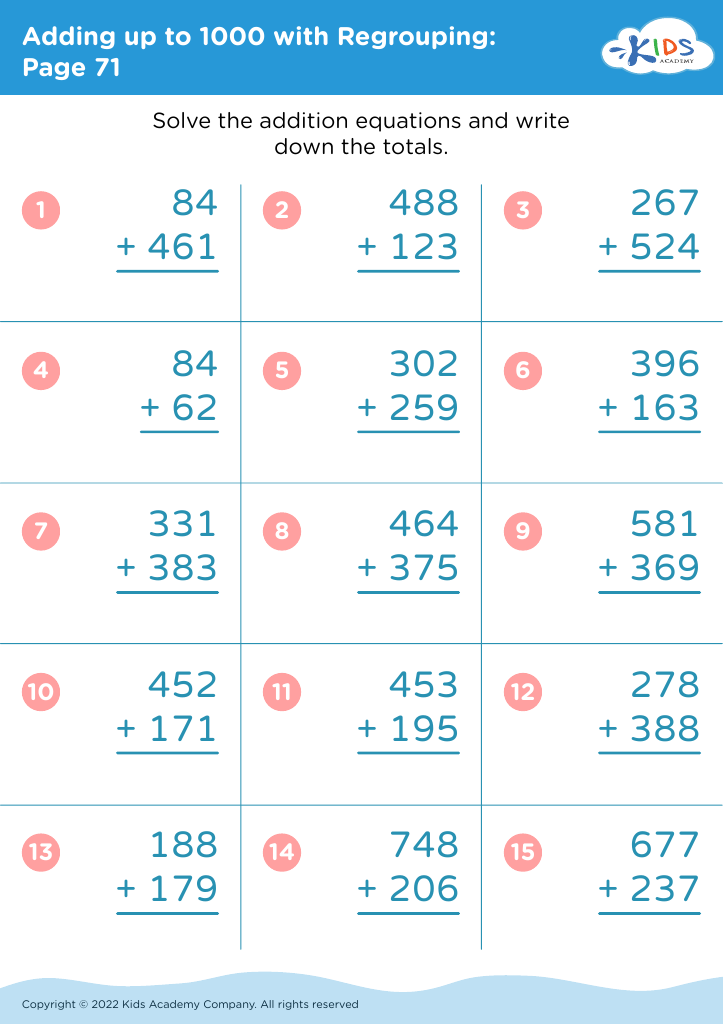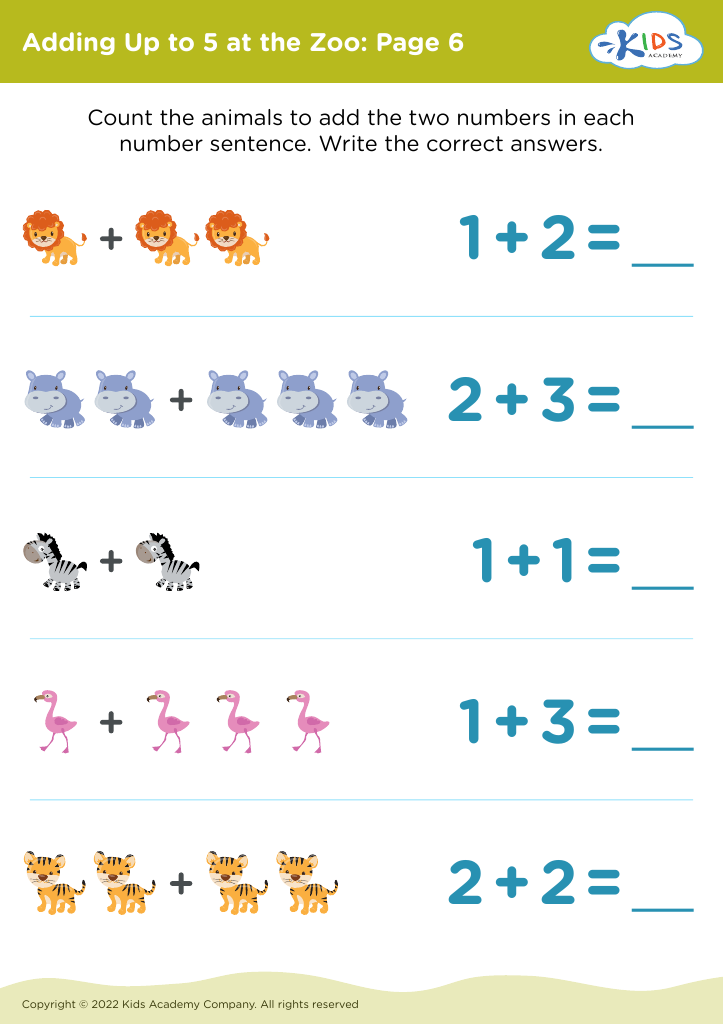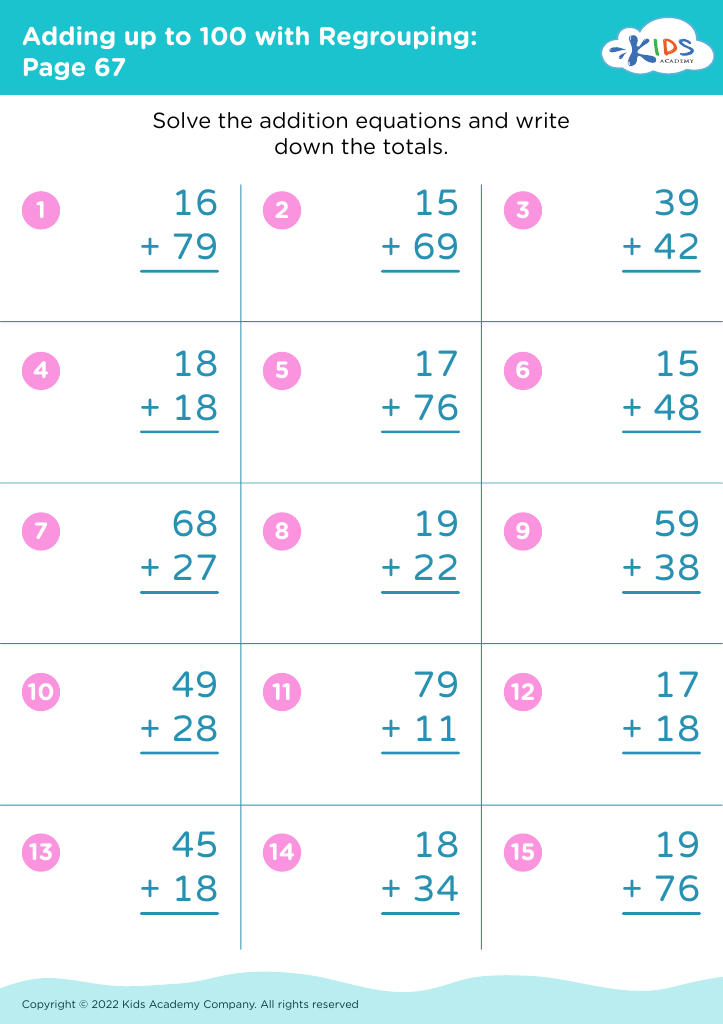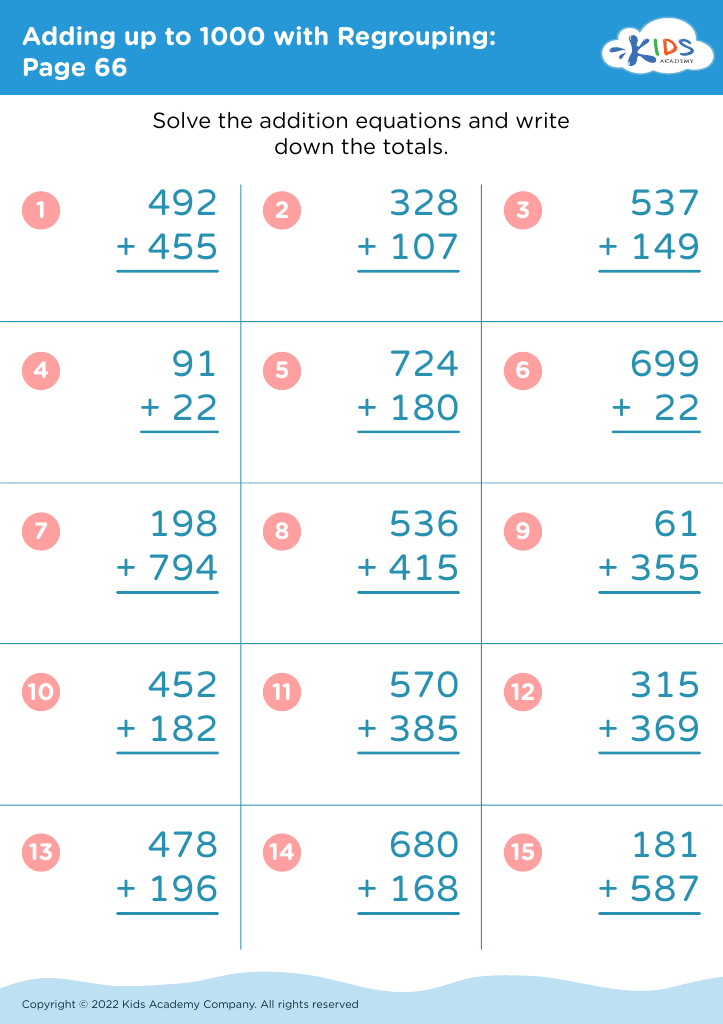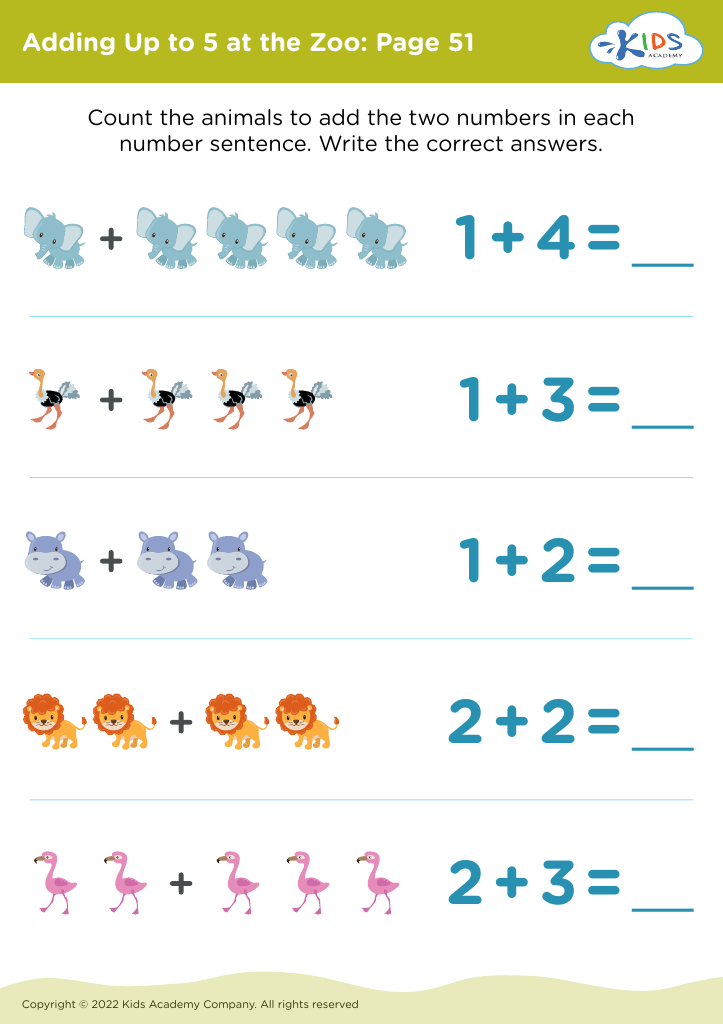Improves counting skills Worksheets for Ages 3-8
11 filtered results
-
From - To
Enhance your child's counting skills with our engaging worksheets designed specifically for ages 3-8! These resources provide interactive and fun activities that make learning numbers enjoyable. From simple number recognition to basic addition and sequencing, our worksheets cater to different skill levels and help children grasp foundational math concepts. Easily printable and designed to keep young minds engaged, these worksheets can be used at home or in the classroom. Boost confidence and proficiency in counting while fostering a love for learning. Explore our collection now and watch your little learners flourish in their mathematical journey!
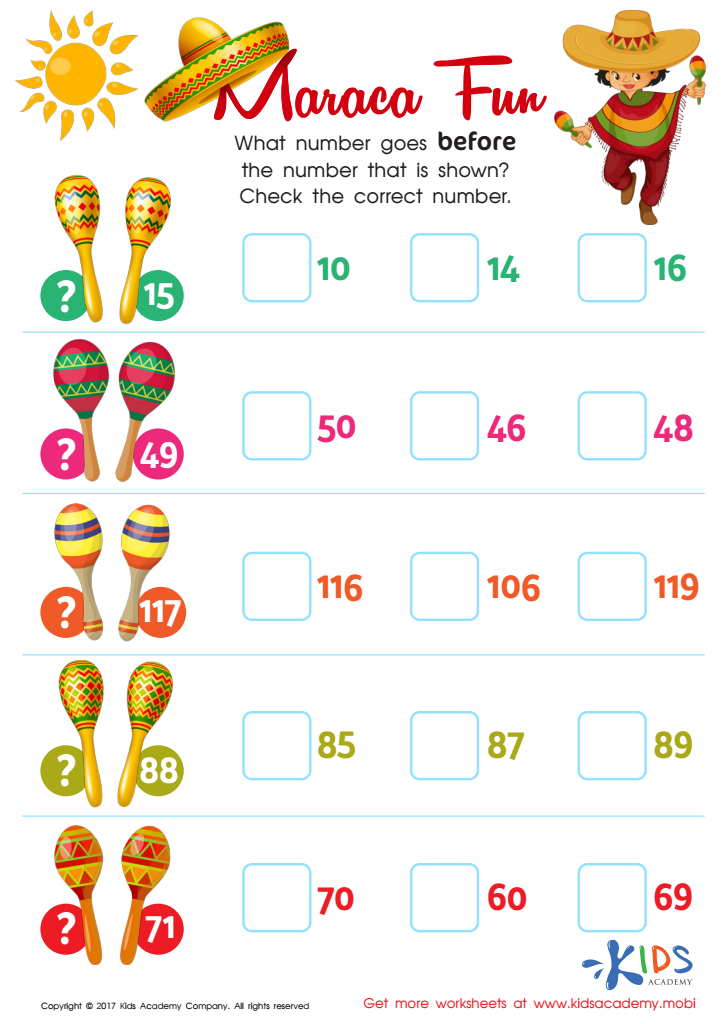

Counting: Maraca Fun Worksheet
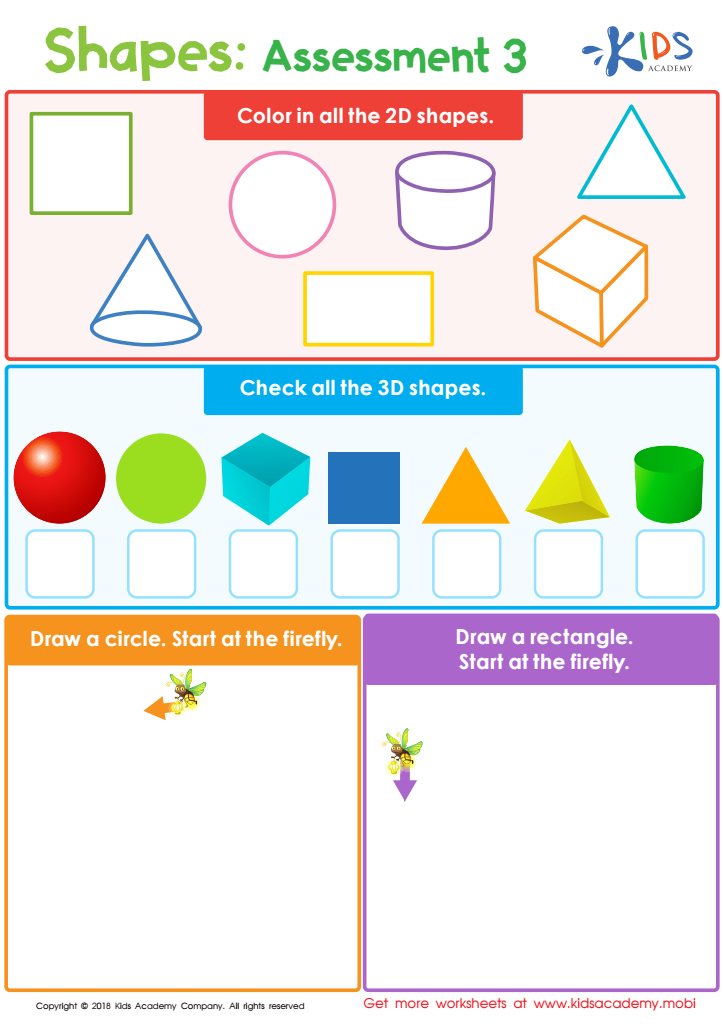

Shapes: Assessment 3 Worksheet
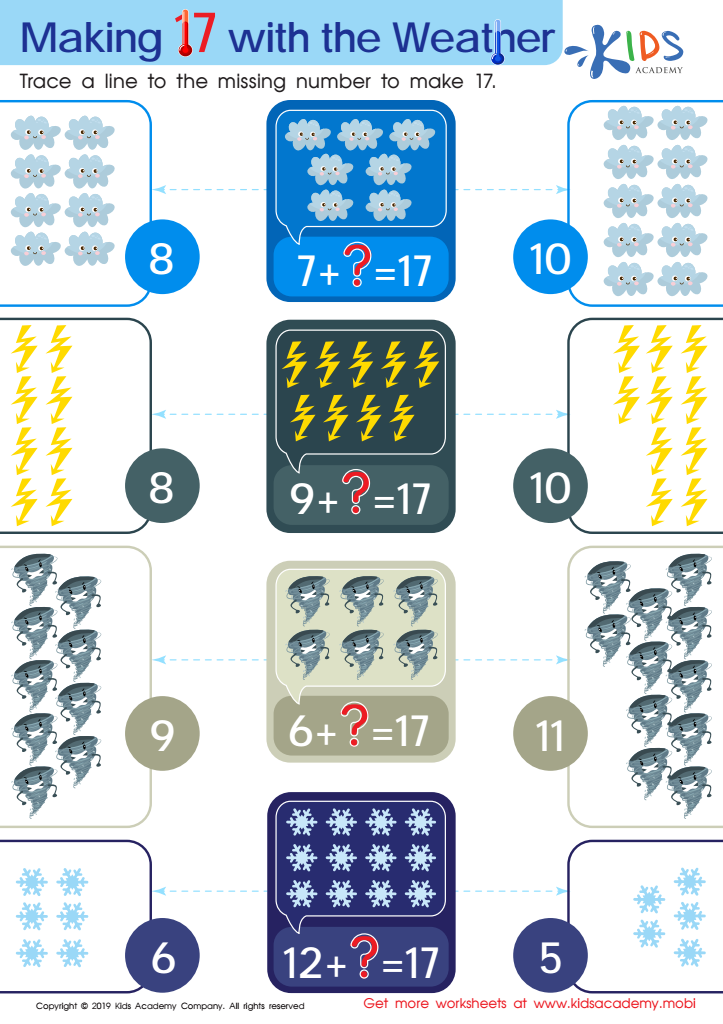

Making 17 with the Weather Worksheet
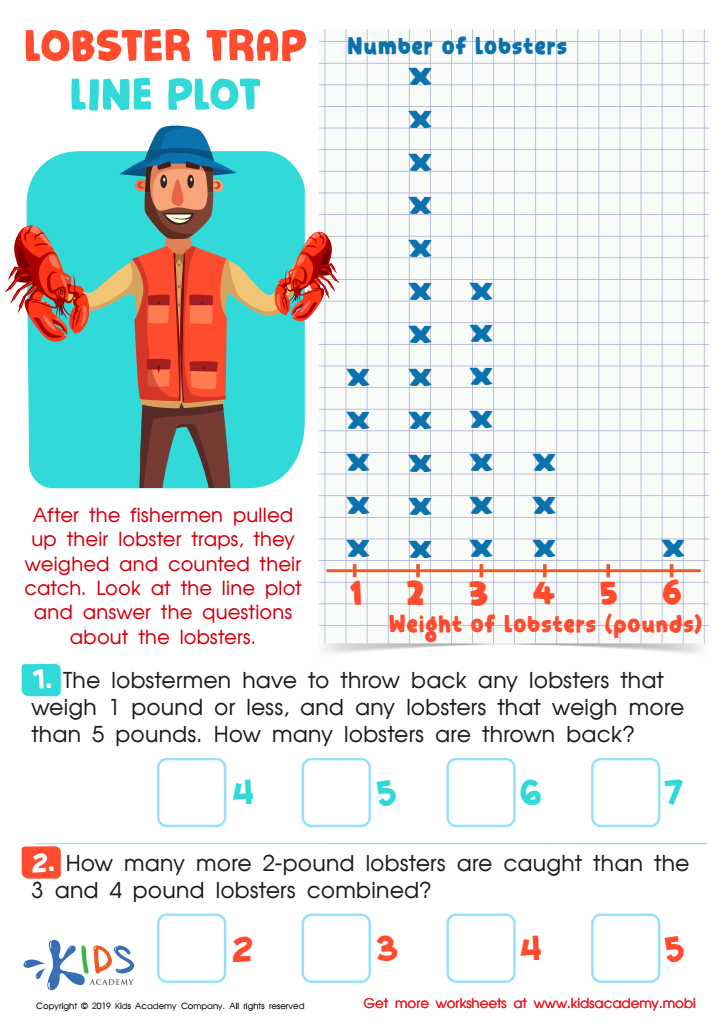

Lobster Trap Line Plot Worksheet
Developing counting skills in children aged 3-8 is crucial for several reasons. Firstly, counting lays the foundation for mathematical understanding. Early numeracy skills boost a child's ability to comprehend more complex math concepts later on, fostering confidence in their mathematical abilities throughout their educational journey.
Additionally, counting skills enhance cognitive development, encouraging logical thinking and problem-solving abilities. When children engage with numbers, they learn to recognize patterns, identify relationships, and improve memory—skills that transcend into other academic areas.
Moreover, counting during these formative years can impact social development. Activities involving counting often promote teamwork, communication, and cooperative play, essential for building social skills and emotional intelligence.
From a practical standpoint, strong counting skills are integral to everyday activities—from sharing snacks to planning playdates—which can help children develop a sense of independence and responsibility. This experiential learning embeds mathematical concepts in meaningful contexts.
Lastly, parental and teacher involvement in developing counting skills can strengthen the bond between adults and children, creating positive learning experiences. Understanding the importance of counting during this critical age encourages adults to be proactive in fostering a supportive environment for children’s growth in both academic and social settings.
 Assign to My Students
Assign to My Students

